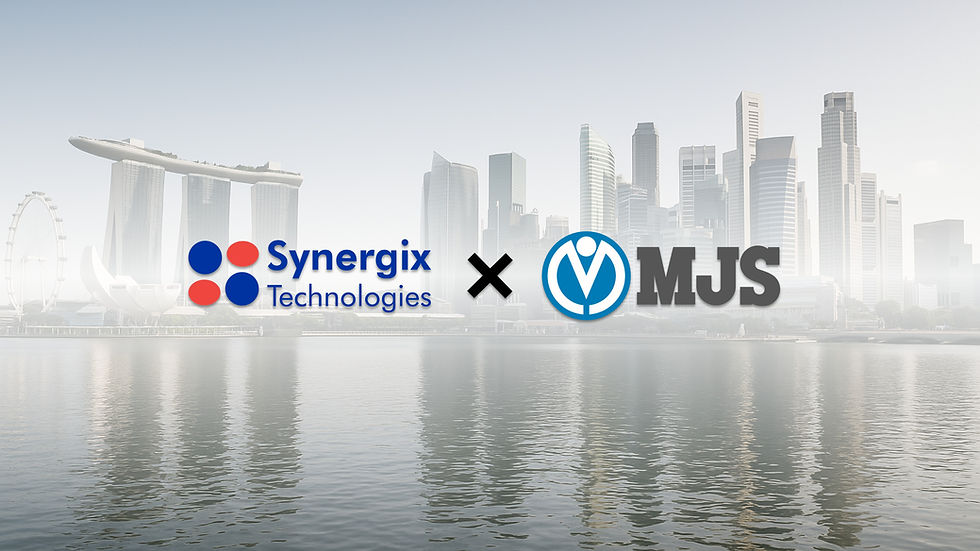AI has Enhanced the 2024 Paris Olympics More than You Realized
- Simeon Spencer
- Aug 5, 2024
- 3 min read
As the 2024 Paris Olympics burst into full swing, you might have caught Google’s AI ad during one of those well-timed breaks. In the ad, a father asks Gemini, Google's AI, to pen a letter to his daughter’s idol, US track star and world record holder Sydney McLaughlin-Levrone. The internet, ever vigilant, responded with a collective groan, decrying the ad as tone-deaf and dystopian. After all, what kind of future are we heading toward if we can’t even muster the effort to write a simple fan letter? Have a look for yourself:
Yet, beyond the controversial AI commercials, the Olympics have quietly embraced AI in less conspicuous but profoundly impactful ways. These AI solutions are seamlessly woven into the fabric of the event, ensuring everything runs better than before.
AI-powered Security and AthleteGPT for Olympians
The International Olympic Committee (IOC) has unveiled a cutting-edge AI-powered monitoring service aimed at safeguarding 15,000 athletes and 2,000 officials from the dark underbelly of online abuse during both the Paris Olympics and the upcoming Paris Paralympics. This sophisticated system keeps a vigilant eye on thousands of social media accounts across all major platforms, scanning in real-time through 35+ languages. Its mission? To detect and flag abusive messages or threats before they can reach the eyes of athletes or officials, allowing them to focus solely on their performance without the shadow of digital hostility.
But the IOC's AI ambitions don't stop at security. Enter Athlete365, the all-encompassing platform for Olympians, which now features AthleteGPT. This chatbot, presumably a close relative of ChatGPT, is brought to life through a collaboration with Intel. It’s designed to assist athletes with a myriad of queries about venues, rules, competition guidelines, and general information. While the concept of AI assistance might not seem revolutionary at first glance, the Paris Olympics serve as a grand stage to showcase how AI can be seamlessly integrated into the world of sports on a global scale.
Olympic Broadcasts Enhanced by AI
The real excitement lies in how AI is revolutionizing broadcasts and highlights at Paris 2024. The Olympic Broadcast Services (OBS) has teamed up with Alibaba to unveil OBS Cloud 3.0, a sophisticated system driving multi-camera replay setups across 14 venues and 21 sports. Cameras capture every moment, sending footage to Alibaba Cloud for AI-powered live spatial reconstruction and real-time 3D rendering. The result? Spectators are treated to creative replays from myriad angles, adding a new dimension to the viewing experience.
Meanwhile, Intel has upped the ante with its own AI innovations, delivering personalized digital content to viewers at unprecedented speeds. The OBS Automatic Highlights Generation system, built on Intel's Geti platform, specializes in training and developing computer vision AI models. This system rapidly packages custom highlights, ready for instant sharing across major social media platforms.
The 2024 Paris Olympics are proving to be an ideal testing ground for such advanced AI technology. If this tech can handle the Olympics' vast scale, it's poised to enhance any sporting or non-sporting event. So, if you notice more dynamic competition highlights, showcasing angles never seen before in real-time, you're witnessing the transformative power of AI, courtesy of Alibaba Cloud and Intel.
AI is Already Reshaping the Sports Industry in a Big Way
Beyond the realms of chatbots and broadcast enhancements, Intel has already ventured into the world of AI-powered athlete tracking. Earlier this year, they unveiled their AI 3D Athlete Tracking (3DAT) technology, a marvel that tracks 21 points across the human body to provide biomechanical insights. This data is gold for coaches seeking to identify elite athletes. The IOC even piloted a scouting program using Intel’s 3DAT in Senegal, identifying over 40 children with the potential to become future Olympians based on their training performance. Check out the short documentary on this remarkable initiative:
If this technology proves scalable for schools and institutions worldwide, it could revolutionize the way countries cultivate young athletes. The ability to groom a broader selection of Olympians from an early age could elevate the standard of competition globally. As AI continues to advance, 3DAT might even become sophisticated enough to categorize children into specific sports disciplines. In the future, there could be a version that assesses intellectual abilities, potentially guiding children into roles that best suit their talents—a concept that is sure to spark debate and controversy.
Overall, the 2024 Paris Olympics have unexpectedly become a proving ground for various AI technologies. These innovations have shown considerable promise, even if the overall organization of the Olympics by the Parisian hosts leaves something to be desired.






Comments